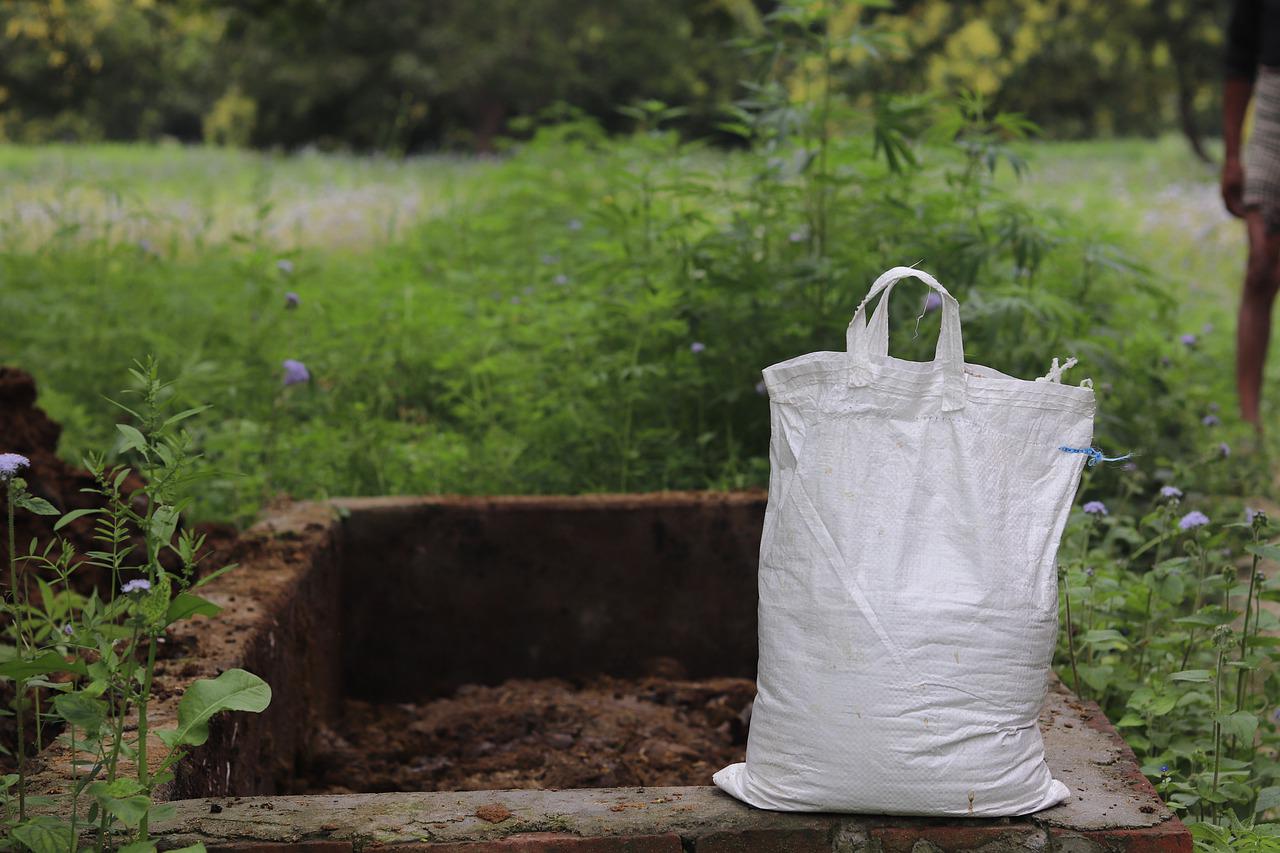Finished compost lasts only for about 3-6 months. To store compost correctly, use a waterproof canvas to cover your outdoor compost pile; also, keep the compost away from excess sunlight. You can also use compost bins or tumblers to store compost either inside or outside.
Proper compost storage ensures your compost retains the much-needed plant nutrients over a long duration. But, the opposite is also true. Poor compost storage can reduce all your compost-making efforts to nothing.
Therefore, learning how to store compost is paramount.
Table of Contents
How Do You Store Compost for Later Use?
The method you use to store your compost depends on the storage duration. Are you storing your compost pile for long or short-term use?
For example, the store-bought compost you want to keep until the end of the month after harvesting needs a short-term storage method.
While compost reserved for spring during winter needs a long-term storage method.
Short-term Compost storage
The aim here’s to protect your finished compost from rainfall and extreme temperature, and also ensure a steady flow of air for aeration.
Use a waterproof canvas to cover your outdoor compost pile. It helps to prevent excess moisture from rain, which can dissolve and drain the nutrients in your compost.
Consider plastic bags; they’re cheap and good storage bags.
Keep the compost away from excess sunlight. You don’t want the organic matter dry. The decomposing microbes need a wet environment to remain active and profit your garden once in the soil.
Setting a temporal roof over your compost pile will prevent excess sunlight, especially during summer.
Long-term Storage
If you intend to keep your compost for over two months, then consider the following;
Plastic bags are also helpful for long-term storage, especially if you’re doing small-scale farming.
The plastic bags are waterproof. Therefore, your compost is safe from excess moisture, and if they’re black, retain the compost heat. You can even use garbage bags.
Use the compost bin or your garbage can – They’re best for making and storing the black gold. However, for the garbage pails, ensure the compost has good airflow.
Remember, compost never stops decomposing; if the bin is sealed, anaerobic decomposition will occur, making the pile stink.
For fresh compost, consider using a tumbler. Tumblers are built specifically for making compost; however, they do make a suitable storage container.
Storing fresh compost in a tumbler improves its value by retaining heat generated by the microbes, which helps to speed up the decomposition process.
Plus, a tumbler comes in handy when turning the compost for aeration. You simply roll it back and forth.
Where Should You Store Your Compost?
The most appropriate place to store your compost should be where it’s easily accessible.
The place should be well-drained, especially for outdoor compost piles. Excess water will make the compost sticky and messy to work with. Plus, excess water causes nutrient leaching.
With finished compost stored in storage containers, you don’t need to give much attention to where to store the compost unless the container is not waterproof.
What About Store-bought Compost?
Mostly, store-bought compost comes in plastic bags. The bags are waterproof and take years to degrade. So it’s okay to leave the compost in the bags, either for short-term or long-term storage.
Ensure to seal the bags before storing the compost to avoid water or insects such as termites from finding their way to the compost.
Can You Leave Compost Outside?
Yes, you can, and I recommend it, especially if the food scraps used for green materials included dairy products – due to the unpleasant smell. The located area should be well-drained and with adequate sunlight.
The compost should also be secure from critters such as opossums and raccoons, which will not waste a chance to spoil the pile.
Can You Store Compost In The Garage?
It’s the ideal place. The temperature is constant; the compost is shielded from rain, excess sunlight, or freezing temperatures. It’s the best place for proper storage, especially during winter if you don’t have a store.
Nonetheless, compost can attract insects into your garage (this’s why some don’t like the idea). However, seasoning the compost with pesticides will keep the pests at bay.
Can Compost Get Too Old?
Yes, compost does get old. Over time, as the compost decomposes, it reaches a point where it loses its nutritious value. But there’s more you can do with old compost:
- You can use the non-nutritious compost as mulch or
- As potting soil for your flowers; the compost makes good bedding for plants’ root
- You can add it to your new compost for water retention
How Long Can Compost Be Kept?
About 3-6 months. After that, the compost will have little benefit for your soil and plants.
Conclusion
Compost never stops decomposing, and due to poor storage, your compost will leak all its nutrients if you’re not careful.
Finished compost lasts only about 3-6 months, so learning how to store compost helps you maximize its potential before the pile ages.
However, for already old compost, you can still use it as mulch for your garden or as potting soil. You can even add it to your new compost to improve water retention.

